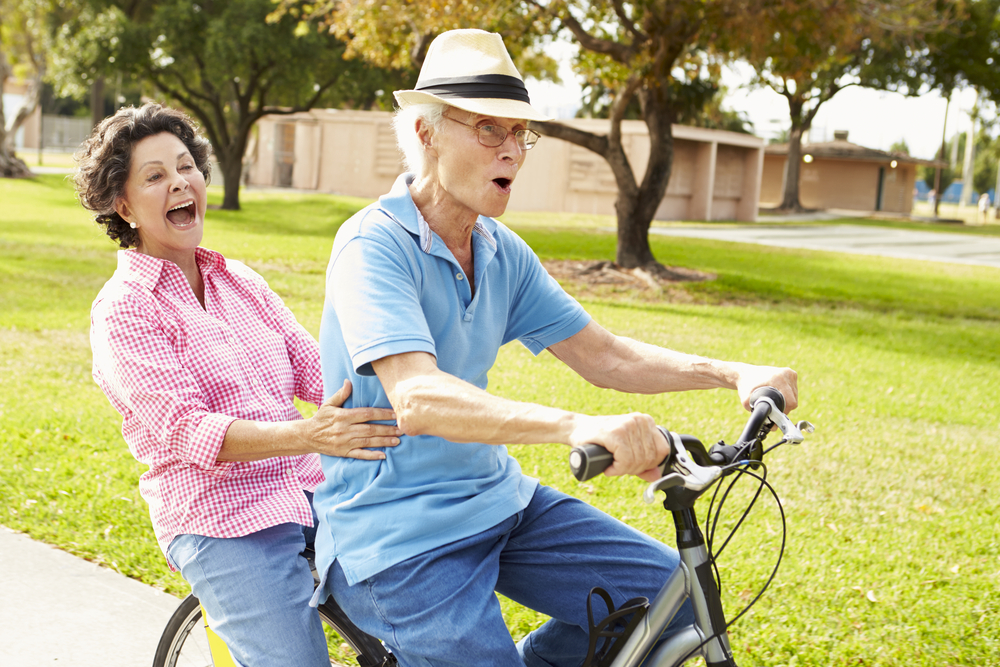More than 40 million adult Americans suffer from the adverse impact of anxiety on their lives, making anxiety disorders the most widespread mental health issue in the United States, as per the National Alliance on Mental Illness.
Although there are several prescription drugs available in the market to treat anxiety such as oxazepam, lorazepam, paroxetine, midazolam, and chlordiazepoxide, they often lead to unfavorable side effects and can cause addiction.
Due to factors such as expense, numerous consumers opt for natural remedies to alleviate their anxiety. However, the process of discovering the ideal product can be baffling and exasperating.
For your convenience, we have compiled a list of 10 scientifically-proven herbal remedies and dietary supplements that can assist with anxiety. However, it is important to seek advice from a doctor before consuming any of these remedies or supplements.
Omega-3
Polyunsaturated fatty acids known as PUFAs, or Omega-3 oils, are necessary for the construction and preservation of a healthy body. As oily fish is a great source of these essential nutrients, omega-3 supplements are often procured from fish, including cod liver oil.
In addition to promoting the well-being of the eyes, heart, bones, and joints, research suggests that omega-3 also has positive effects on mental health.
A randomized controlled trial funded by the NCCIH of the US Department of Health in 2011 revealed that medical students who were subjected to stressful exams and given omega-3 supplements on a daily basis demonstrated a 20% decrease in anxiety symptoms when compared to those who were administered a placebo.
Ashwagandha
Ashwagandha, also referred to as Withania somnifera, is a petite shrub that has been a popular medicinal herb in Ayurveda (the traditional Indian medicine) for many years owing to its root. Existing clinical trials have revealed an increasing amount of proof for its therapeutic characteristics in recent years.
An article was published in the peer-reviewed Indian Journal of Psychological Medicine in 2012, stating that participants who had chronic stress reportedly experienced a “significant” decrease in anxiety after taking ashwagandha root extract twice daily for 60 days at a 300mg dose. The authors’ conclusion was that the herb could be “safely and effectively” utilized to enhance a person’s resistance to stress.
A study conducted in 2019 affirmed the same results, indicating that individuals who received ashwagandha root extract experienced an improved quality of sleep compared to those who were administered a placebo.
Some individuals have experienced a decrease in stress and anxiety symptoms with the use of ashwagandha, an adaptogenic plant which is thought to affect anxiety through its anti-inflammatory and antioxidant qualities, and its impact on the regulation of anxiety through the GABA receptor. In studies involving adults, ashwagandha root extract supplements have been shown to result in reductions in depression, anxiety, and stress, as well as improvements in overall well-being and sleep.
Ashwagandha is not a cure-all, and ongoing research is needed to identify the ideal dosage, frequency, and long-term use safety. While it has been ineffective in treating anxiety, it is essential to recognize that ashwagandha may interact with several medications, such as diabetes and thyroid medications, immunosuppressants, sedatives, and blood pressure-lowering drugs, indicating it may not be safe for some people. Furthermore, ashwagandha has been linked to liver damage in some case reports after two to 12 weeks of use.
Chamomile
Several daisy-like plants are grown for their flowers, which are dried and steeped in hot water to make chamomile tea, a well-known and beloved bedtime drink for herbal tea enthusiasts. While it’s been recognized for its relaxation-inducing properties by generations, scientists are now accepting chamomile as a credible anxiety treatment.
At the University of Pennsylvania, a study was conducted from 2010 to 2015 to determine the lasting effects of chamomile therapy on moderate to severe generalized anxiety disorder (GAD). The treatment group was administered 500mg capsules of chamomile extract 3 times daily, while the control group received placebos. Results revealed that within a mere 8 weeks, chamomile yielded a substantial and “clinically significant” decrease in GAD symptoms.
Passionflower
Passionflower, also known as Passiflora, originates from the Americas and is identifiable by its unique corona containing shades of purple, yellow, and white. Despite being highly valued for its aesthetic appeal, passionflower is increasingly recognized as a holistic substitute for conventional anti-anxiety drugs.
The peer-reviewed Journal of Clinical Pharmacy and Therapeutics published a clinical trial in 2001 that showed Passiflora extract was equally effective as the anxiolytic drug oxazepam for treating generalized anxiety disorder (GAD). However, Passiflora extract had the added advantage of not causing job performance impairment noted in patients taking oxazepam.
A study published in 2017 revealed that the anxiety-reducing properties of Passiflora incarnata (purple passionflower) were comparable to midazolam, but did not cause any memory loss in patients undergoing a tooth extraction procedure.
American Skullcap
Various strains of skullcap, a mint family flowering plant with flowers shaped like helmets, exist; however, American skullcap (Scutellaria lateriflora), utilized for over 200 years as a mild sedative in traditional herbal medicine, appears to hold the most potential for managing anxiety in clinical studies.
In 2003, the peer-reviewed journal Alternative Therapies in Health and Medicine published the findings of a double-blind, placebo-controlled investigation into the efficacy of American skullcap in healthy volunteers, which “demonstrated noteworthy anxiolytic effects.”
In a 2010 publication for the British Journal of Wellbeing, the University of Westminster’s researchers acknowledged that clinical and in vitro research are consistently providing positive results for American skullcap as a secure, well-received, and potent substitute for pharmaceutical anxiolytics.
Lavender
Famous for its sweet scent and unique violet color, lavender is a flower utilized in many aspects, including cooking and cosmetics. Its essential oil, known as lavender oil, is a preferred choice among aromatherapists, who have believed for centuries that it possesses calming qualities. Recent scientific studies have largely confirmed this notion.
Two randomized controlled trials, which were published in 2010 and 2014, reveal that Silexan, an oral lavender oil product, demonstrates comparable efficacy to benzodiazepine lorazepam and selective serotonin reuptake inhibitor paroxetine in the treatment of generalized anxiety disorder (GAD).
Additional research demonstrates that the presence of lavender scents in dental waiting rooms can alleviate anxiety and enhance mood (Physiology & Behavior, 2005). Likewise, consuming lavender herbal tea may have comparable soothing effects on elderly patients (Complementary Therapies in Medicine, 2020).
Black Horehound
Black horehound, a perennial herb resembling nettles, is originally from the Mediterranean and Central Asia but is also present throughout Europe and North America. Although it is often called “Stinking Roger” due to its strong smell, it has been grown for medicinal purposes since the 13th century despite its unpleasant scent.
The ESCOP, an organization consisting of herbal medicine councils and phytotherapy societies from various European countries, gathers scientific evidence on herbal remedies to be presented to the European Medicines Agency. According to them, a clinical trial on black horehound revealed that 65% of patients suffering from general anxiety disorder responded well to the treatment after 60 days. This study further validates the anxiety-reducing properties previously observed in rodents during in vivo tests.
L-Theanine
Although L-theanine is present in green and black tea, the quantity in a cup of brewed tea is negligible, prompting individuals to rely on supplements to obtain a greater amount. Various studies have indicated that it might mitigate acute stress and anxiety and enhance the quality of sleep.
Based on a review of nine studies, an intake of 200-400 milligrams could potentially alleviate stress-related anxiety. Nonetheless, administering high doses of L-theanine to individuals with generalized anxiety disorder did not result in an improvement of anxiety symptoms, necessitating further research to determine whether it can be useful to individuals with more persistent anxiety symptoms, and if so, at what dosage.
L-Theanine should be avoided by individuals who are taking sedatives such as Midazolam, and it may also be unsafe for pregnant or nursing individuals.
Valerian Root Extract
Valerian root has been utilized for centuries in teas and tinctures to potentially aid with nerves, stress, and sleep. Anxiety can be aggravated by insufficient sleep, and two of the herb’s primary components have been researched for their ability to induce sedation and elevate the levels of GABA, the calming and inhibitory neurotransmitter.
Valerian root supplementation has demonstrated a reduction in anxiety in certain studies, while others have yielded unclear results. However, it is worth noting that one study observed an aggravation of anxiety symptoms with a high dosage of 1,800 milligrams. Although this herb is generally well-tolerated, individuals may experience side effects such as headaches, nausea, and heart palpitations.
Valerian’s ability to induce sedation makes it potentially risky to consume along with sedatives and antihistamines, as well as prone to interacting with statins, a selection of seizure medications, specific antidepressants, and antifungal treatments. Additionally, there is no available evidence to support its safety during gestation.
Magnesium Lactate
The health of the nervous system is linked to magnesium, and deficiencies of this mineral can affect the hypothalamic pituitary adrenal axis (HPA), which is a factor in anxiety disorder development.
Magnesium also impacts gut health, where neurotransmitter production and regulation occur. Therefore, adding magnesium supplements might alleviate anxiety symptoms, although research is currently limited. Early findings suggest that magnesium supplements may be effective in reducing stress and anxiety for those lacking magnesium in their diet (otherwise known as hypomagnesemia). However, there is no evidence that it works in individuals who have sufficient magnesium levels.
It is advisable to consult a healthcare provider regarding magnesium supplementation if you are taking Fosamax, doxycycline or ciprofloxacin antibiotics, Lasix diuretics, or Nexium proton pump inhibitors as these medications may have interactions with magnesium.
Purium Products That Contain Magnesium:
Epi-Genius Family
Power Shake
Super Meal LOV









